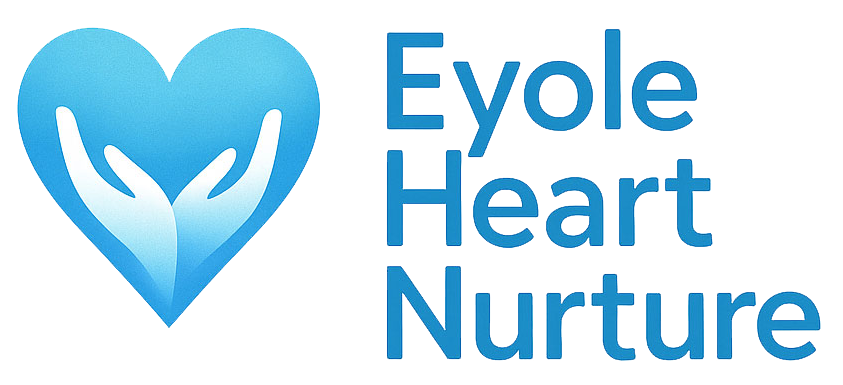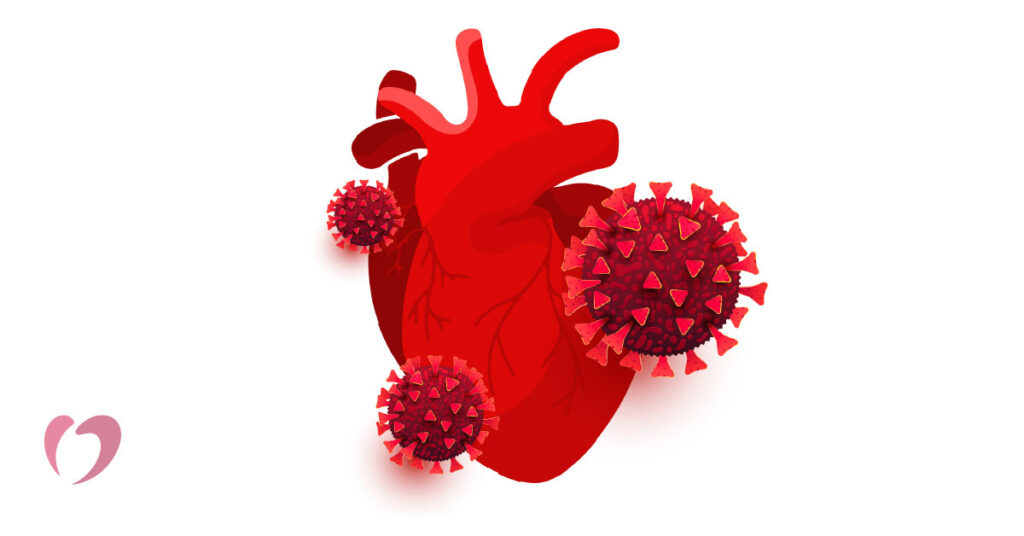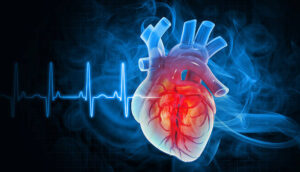It can strike silently, turning a simple infection into a long-term threat.
“My ordeal began with what seemed like a mild case: fever, cough, and body aches that faded after a week. But as time passed, I noticed shortness of breath during simple tasks, like walking to the market, Naomi, a 52-year-old nurse, recalls. Research from the NIH shows that COVID-19 infection can double the risk of heart attack, stroke, and death for up to three years, with severe cases quadrupling that risk. “Infection from COVID-19 during the first wave of the pandemic significantly increased the risk of heart attack, stroke, and death for up to three years among unvaccinated people,” the study highlights. This reality hits hard, but Psalm 147:3 comforted us: “He heals the brokenhearted and binds up their wounds.”
Causes of the COVID-Heart Health Connection
The virus doesn’t just attack the lungs; it invades the heart too. Cleveland Clinic explains that heart problems after COVID do happen, sometimes even in people who have mild cases. After you recover, you may be at a higher risk of a heart attack or heart failure. This is often because of inflammation from your body’s response to the COVID-19 infection. For Naomi, this inflammation caused her heart muscle to swell, a common post-COVID complication. The NIH study highlights that COVID patients face double the chance of cardiovascular events, and four times for severe cases (NIH, 2024). This knowledge, coupled with Jeremiah 29:11 “For I know the plans I have for you, declares the Lord, plans to prosper you and not to harm you, gave me hope amid the fear, Naomi adds.
Symptoms
Shortness of breath, lower extremity swelling, and fatigue are common signs, per Cleveland Clinic. For Naomi, these symptoms emerged weeks after recovery. With the help of her doctor, she learned to recognize them early, drawing strength from Isaiah 41:10: “So do not fear, for I am with you; do not be dismayed, for I am your God.” This faith helped her face the uncertainty.
Diagnosis and Treatment
Cleveland Clinic advises, “Blood tests and cardiac imaging” for an accurate assessment. For severe cases, hospitalization may be needed. The NIH emphasizes vaccination to reduce risks, while the Cleveland Clinic notes, affected persons may need heart medications or therapy. Medical support, gentle exercises, and prayer aided Naomi’s recovery, echoing Psalm 103:3: “Who forgives all your iniquity, who heals all your diseases.”
Prevention
According to health experts, prevention is key; vaccines, masks, and hygiene reduce severe COVID risks. For heart protection, manage blood pressure and cholesterol. CDC states, “Getting vaccinated” is crucial.
Researchers will continue learning about COVID and heart issues. Meanwhile, living with post-COVID heart issues means monitoring symptoms and staying active. We help you embrace this, with Philippians 4:13: “I can do all this through him who gives me strength.” Take our free heart test at Eyole Heart Nurture to start your vigilant journey.
Frequently Asked Questions
- Can COVID cause congestive heart failure?
Yes, severe COVID can lead to heart failure through inflammation, as noted by Cleveland Clinic. - What are the chances of surviving COVID with heart failure?
Survival rates vary, but heart failure increases risk; CDC advises vaccination to improve odds. - Can heart failure from COVID be reversed?
Early treatment can improve function, though full reversal depends on the damage, per NIH. - What are two signs of worsening heart failure?
Shortness of breath and swelling in the legs are key signs, as highlighted by Cleveland Clinic. - How long do heart problems last after COVID?
They can persist for months or years, especially in long COVID, according to NIH findings. - What are the 12 symptoms of Long COVID?
Symptoms include fatigue, brain fog, chest pain, shortness of breath, headaches, palpitations, joint pain, depression, fever, dizziness, sleep issues, and loss of smell/taste, per Cleveland Clinic. - Can COVID cause a leaky heart valve?
COVID inflammation can damage valves, leading to leaks, as noted by Cleveland Clinic. - What is considered severe COVID?
Severe COVID involves hospitalization with oxygen needs or ventilator support, per CDC. - How is COVID-19 treated in heart patients?
Treatment of COVID-19 in heart patients includes antivirals, oxygen, and heart monitoring, with vaccination key for prevention (CDC). - Can COVID affect your heart rate?
Yes, COVID can cause irregular or fast heart rates due to inflammation, as explained by Cleveland Clinic.






Thank you for your sharing. I am worried that I lack creative ideas. It is your article that makes me full of hope. Thank you. But, I have a question, can you help me?
I’m thrilled the article sparked hope and fresh ideas for you. Creativity often hides in plain sight, waiting for a nudge like this.
Absolutely, I’d love to help with your question—what’s on your mind?
I don’t think the title of your article matches the content lol. Just kidding, mainly because I had some doubts after reading the article.
Haha, you had me chuckling with that title tease—fair point, they can be sneaky like that! 😄 But seriously, I’m glad you read on and the content addressed your doubts.
Titles aim to hook without spoiling the full story, but I’d love your thoughts—what felt mismatched at first glance?
Thanks for engaging—looking forward to hearing more!